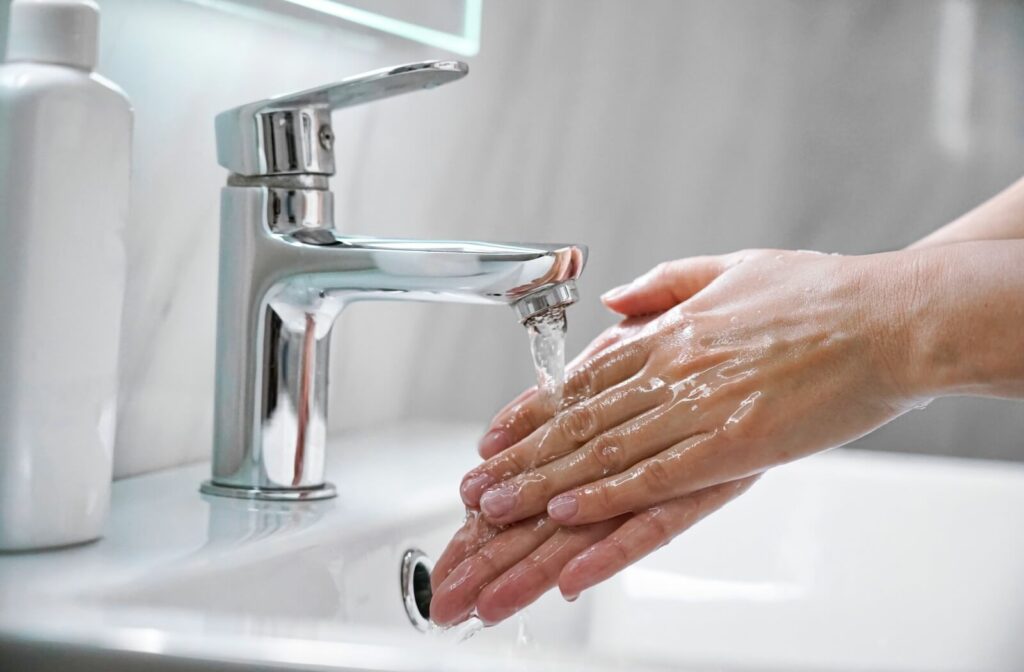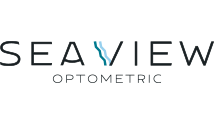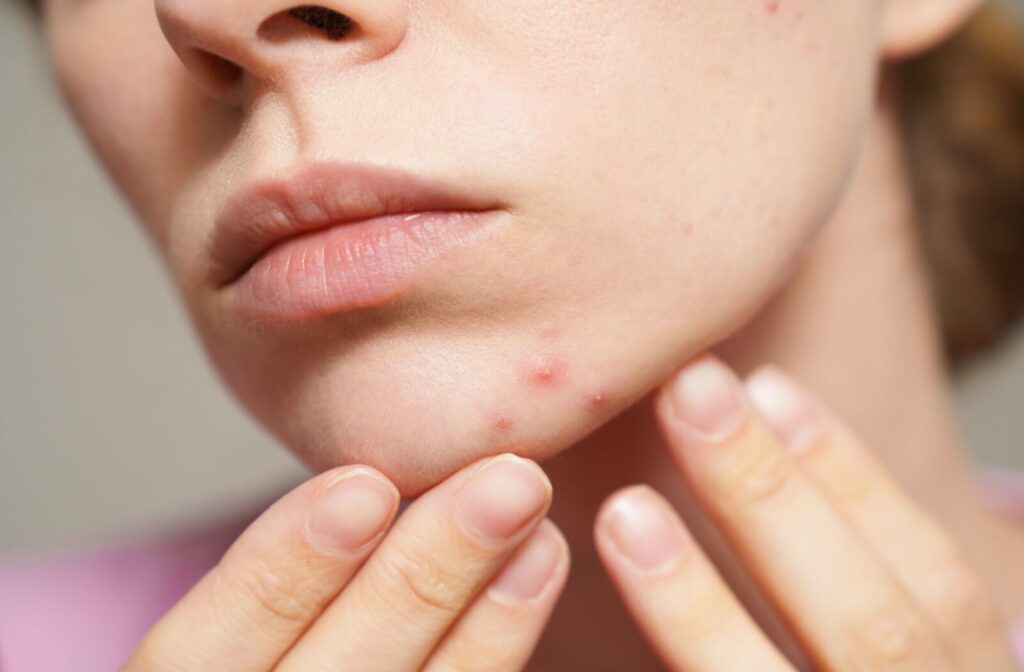With the school year approaching, many young people may be hesitant to start seeing their peers again if they’re struggling with acne. While this skin condition is a common experience among young folks, it can be irritating or even painful. Sometimes, it can even affect mental health.
You’ve probably heard of tips to “prevent” acne, such as not touching your face. And while touching your face doesn’t necessarily cause acne (at least not directly), it’s a good idea to avoid doing so. We’ll dive deeper into possible causes and mechanisms behind acne, including tips to help you avoid touching your face.
If you struggle with acne, talk to your family doctor or dermatologist. You can also ask about modern treatments like intense pulsed light (IPL) therapy, which can also treat conditions like dry eye and rosacea.
Acne Basics
Acne is a common skin condition where hair follicles become blocked with oil or dead skin cells. Acne can affect anyone, but it tends to be more common in teenagers and young adults. It often goes away by the time a person reaches their 30s, but some people experience acne in their 40s and 50s, too.
The bottom line is, if you struggle with acne, you’re not alone! Today, there are many ways to treat acne, but myths also prevail. So, it may help to understand the science behind acne a little more.
What Causes Acne?
Your hair follicles are connected to an oil gland. This gland produces an oil that keeps your skin hydrated. Hair follicles are also lined with a type of skin cell called keratinocytes. When oil and keratinocytes get stuck in hair follicles, bacteria can build up and acne can form.
Hormones and family history can contribute to your risk of developing acne. And while the following things can make acne worse, they don’t cause acne directly:
- Scrubbing your skin very hard
- Picking at your pimples
- Irritation and pressure from what you’re wearing, such as helmet straps
- Pollution, humidity, and other sources of irritation in the environment
- Stress
Some research indicates that certain foods can worsen acne, but research on diet and acne is ongoing.
Touching your face doesn’t necessarily cause acne. But touching your face can spread oily substances that increase your risk of developing acne. And because sharing makeup can introduce bacteria from other people’s skin onto your own, it stands to reason that constantly touching your face with unclean hands can put your skin at risk.
How to Avoid Touching Your Face
It’s hard to avoid touching your face. But, besides introducing unwanted substances onto your skin, touching your face can also spread illnesses like pink eye or the common cold. So, avoiding touching your face is a healthy habit to develop.
To avoid touching your face, try:
- Wearing a face mask, which makes the face less accessible
- Having something else to fidget with
- Having something like a tissue close at hand so you can create a barrier when you need to scratch an itch
- Regularly washing your hands so that even if you do touch your face, your hands are relatively clean
- Becoming more aware: putting a fragrance on your hand or wrist can help if you notice the scent as your hand approaches your face

Ways to Manage Acne
Many products are available to treat acne, but sorting through them and understanding what actually helps can be overwhelming. If you want to manage your acne, ask your family doctor or dermatologist for treatment recommendations.
Topical Medications
These are medications you apply to the surface of your skin. They can help reduce acne by targeting bacteria, inflammation, or clogged pores. Some are available over the counter, while others may require a prescription depending on the severity of the condition.
Oral Medications
These are medications you take by mouth. They can work by addressing inflammation, bacterial growth, or hormonal factors that may contribute to acne. Your healthcare provider will determine if this type of treatment is right for you.
Intense Pulsed Light (IPL)
People with severe acne or acne scars may consider light therapies and laser treatments. Research on these methods is ongoing.
Intense pulsed light (IPL) therapy can treat dry eye along with skin conditions like rosacea, sun spots, and acne. During an IPL treatment, a cooling gel will be applied to your skin, and your eyes will be protected with glasses. Light is then used to penetrate and treat the skin.
A single procedure takes about 30 minutes, and people often need 3 to 6 sessions. Side effects can include redness, sensitivity, and swelling, but these should go away in a few days.
Skin Care at Sea View Optometry
Even though it’s a common experience, acne can have a significant impact on an individual’s quality of life. Understanding how acne works can help you develop habits that promote good health and clear skin, such as washing your hands, avoiding touching your face, and using noncomedogenic (non-clogging) skin care products. Protecting your skin from UV rays is also key, not only for preventing sun damage but for maintaining healthy skin long-term. Sunglasses with proper UV protection can shield the delicate skin around your eyes, and keeping your prescription eyewear up to date helps ensure clear vision and healthy daily habits.
At Sea View Optometry, we also offer skin care services like intense pulsed light (IPL) therapy. Our goal is to tailor treatments to your skin type, and we strive to be inclusive of everyone who walks through our door. To learn more about our services or to book an appointment, contact us today.



